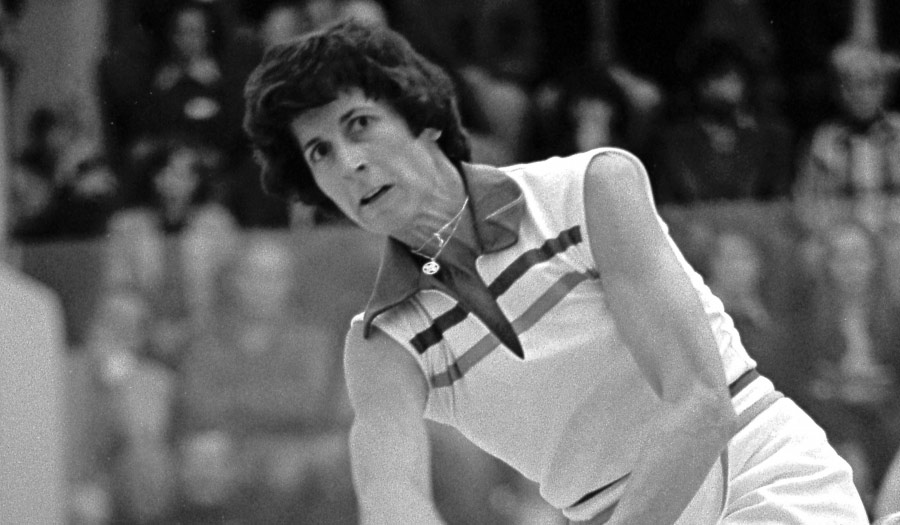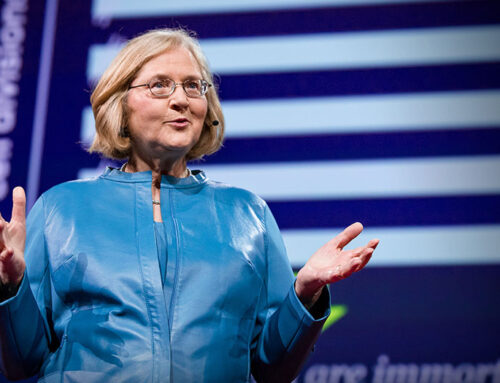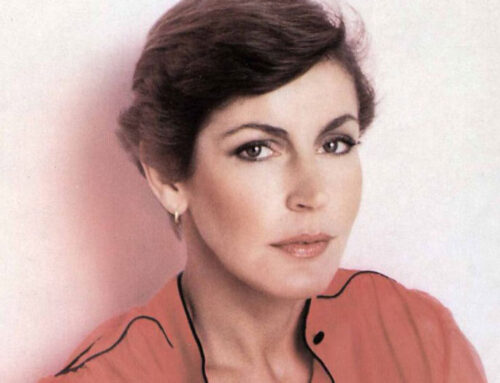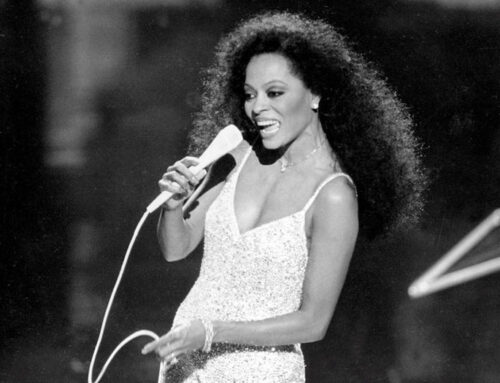Heather McKay, AM, MBE, AO was born Heather Blundell in 1941, the eighth of eleven children growing up in Queanbeyan, NSW. She played tennis in summer and hockey in winter. and most of her brothers and sisters also played sport regularly, some at a high level, in games like tennis, hockey, rugby and AFL. Her father was a champion country rugby league player and both parents played tennis.
In 1959 with the idea of improving her fitness for hockey, she played her first game of squash. A year later she entered the national championships and won the Australian Amateur Title.
Only five feet six inches tall and little more than nine stone, she was nevertheless very physical – able to hit harder than most opponents and to move faster than any of them. She turned and changed direction with devastating speed.
McKay was also very strong-minded, making her focused, ruthless, and consistent. It made her conspicuously self-possessed too, creating a formidable on-court presence.
Her list of athletic achievements is quite incredible.
From 1960, Heather won the Australian Amateur title every year for the next 14 years.
In 1962 she won the first of 16 consecutive British Opens – a title she held until 1977.
McKay also held the New South Wales and Victorian titles from 1961 to 1973.
Moving to Canada with her new husband to coach in 1975, McKay won the inaugural women’s World Squash Championship in 1976, winning it again in 1979.
She won the American Squash Championships in 1977, and the American Amateur Racquetball Championships in 1979.
In 1980 she won the Canadian Racquetball Championship retaining the title from 1982 until 1985. In 1980, 1981 and 1984 she won the American Professional Racquetball Championships.
In 1985 the McKay’s returned to Australia and until 1993 worked as a squash coach at the Australian Institute of Sport.
In over 20 years of competition, McKay lost just two matches – a record that is unlikely to ever be broken.
McKay also proved to be a talent in other sports, including hockey, representing Australia in 1967 and 1971.
The fact that Heather McKay was a champion performer in not one but four sporting arenas makes her entirely deserving of the praise offered by Peter Meares in his 2003 book on Australian sporting legends: “In spite of her staggering achievements, she is gracious and humble. She remains one of our most inspirational legends of Australian sport.”
Her achievements are unmatched by other Australian sporting heroes, yet more Australians will be familiar with the accomplishments of Pat Cash or Shane Warne than they are with McKay’s. She is a little frustrated by the lack of recognition, not because she needed it but because her sport could benefit from the publicity. Furthermore, she is confident the reason she has been overlooked has nothing to do with the fact that she is a woman and everything to do with her choice of sport. Heather McKay played squash.
Despite there being a tradition of excellence in Australian squash at an elite level, and despite its popularity as a participant sport, squash in Australia has never had a high media profile, not even when an Australian woman was literally unbeatable. In fact, in a cruel paradox, the better she became, the less media coverage Heather McKay received. Her mother used to say to her, ‘I knew if I didn’t hear anything about you, that you had to be winning’.
Having returned to Australia in 1985 after taking up an offer to coach with Geoff Hunt at the AIS in Brisbane, the McKays moved back to Canberra in 1999. “It was coming home,” she says. “Family is here and I’m a Queanbeyan girl, always will be.”
More recently, she has taken up tennis, winning the World Veteran’s Tennis Championships and was also part of the winning combination in the world teams event, the Alice Marble Cup.
In 1979, McKay became a Member of the British Empire (MBE) and in 1969 was made a Member of the Order of Australia (AM) for her services to squash. She is a Member of the World Squash Hall of Fame.




